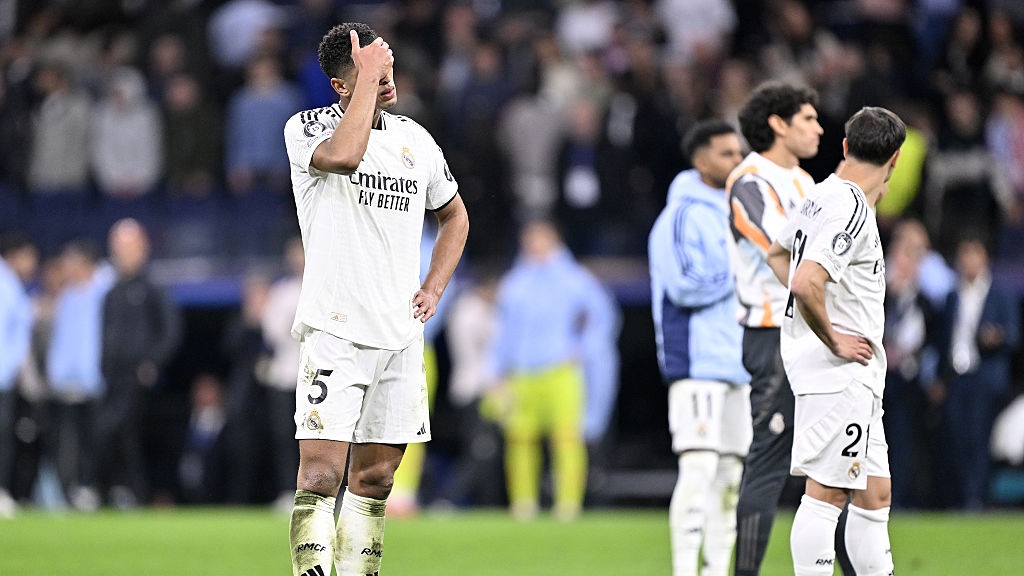The 25 best Premier League players of the 1990s
In this slideshow we've picked out the 25 best...
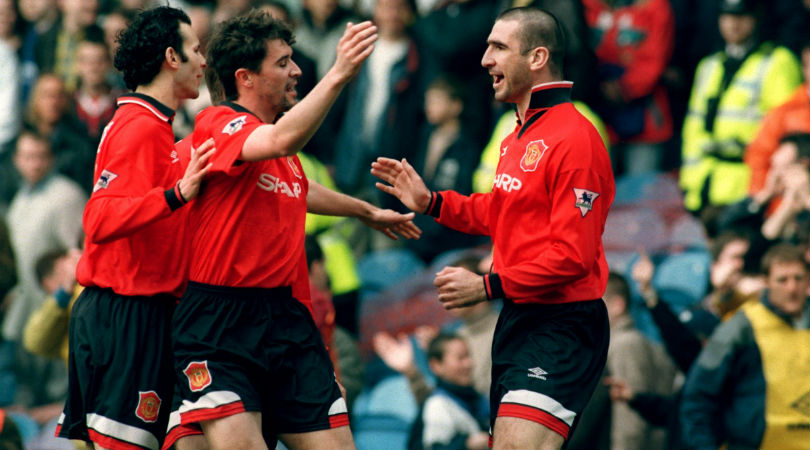
90s fever...
With five different top-flight champions and the balance of power making its way from Merseyside to Manchester via north London, Leeds and Blackburn, the 1990s proved to be a decade of gripping entertainment in English football.
From the advent of the Premier League and Champions League in 1992 through the unlikely title triumph of Blackburn in 1995 and Manchester United's 1999 Treble, the millennium's last decade saw some of the biggest changes in English football history. Amid those, some of the finest footballers ever to play the game came to these shores. In this slideshow we've picked out the 25 best...
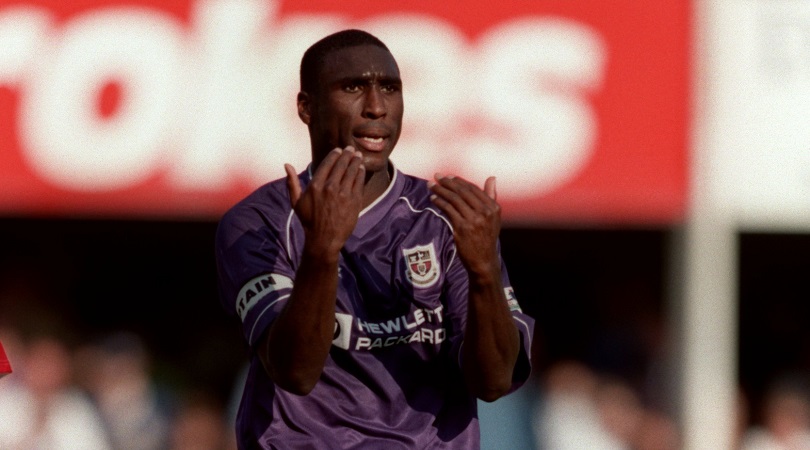
25. Sol Campbell (Tottenham)
Campbell’s decision to swap Tottenham for Arsenal in 2001 was arguably the most shocking transfer in English football history, albeit one which was later vindicated by two Premier League and FA Cup winner’s medals apiece.
By contrast, the England international had just a solitary League Cup to show for his nine seasons on the other side of the north London divide, but it was at Tottenham where Campbell established himself as one of the Premier League’s best centre-halves.
He made his debut in 1992/93 and racked up over 200 top-flight appearances before the decade was out, demonstrating the athleticism, positional sense and aerial power that marked him out as a formidable opponent for centre-forwards up and down the country.
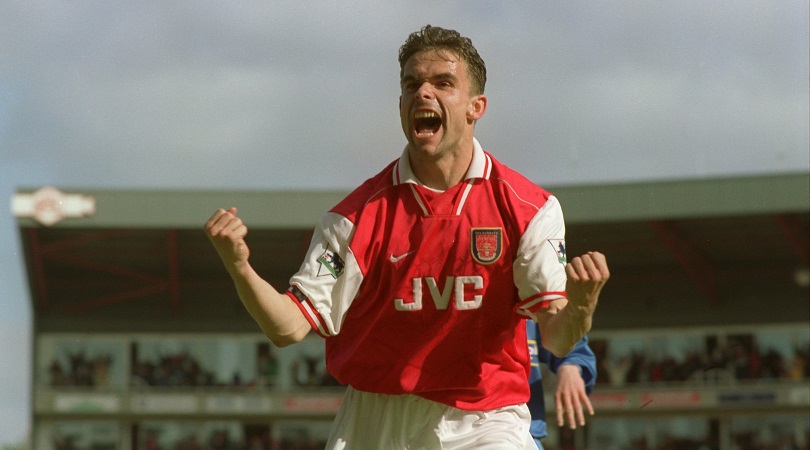
24. Marc Overmars (Arsenal)
Overmars’ Premier League stay was short but very, very sweet. Upon joining Arsenal from Ajax in summer 1997, the Dutchman predicted a successful spell in north London, telling the media: “I like English football because there is more pace… with my speed and quality I think it will be good for me here.” He wasn’t wrong.
Overmars hit the ground running, with a series of superb showings helping Arsenal to the top of the table in early 1997/98. He ended that campaign with 12 goals (including the winner against title rivals Manchester United) and five assists, plus a Premier League winner’s medal around his neck.
That would be his only title triumph at Highbury, although he remained one of the division’s most devastating attackers in the two seasons that followed. In 2008, Overmars was voted Arsenal’s 12th greatest ever player – not too shabby for three years’ work.
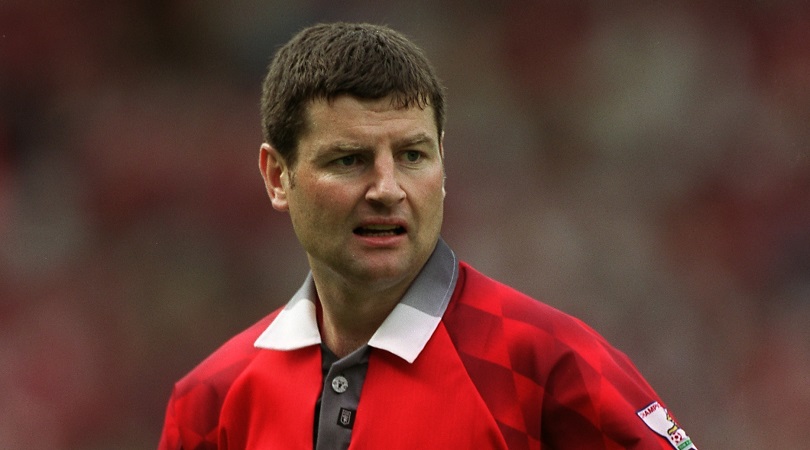
23. Denis Irwin (Manchester United)
An underrated element of Manchester United’s 1990s machine, Irwin won six Premier League titles at Old Trafford during the competition’s first eight seasons. By no means the most spectacular member of Alex Ferguson’s squad, the Irishman was nonetheless a solid, reliable performer at left-back, and usually one of the first names on the Red Devils team sheet.
Irwin had already spent two seasons in Manchester by the Premier League’s inauguration, before featuring in 40 of 42 games as United ended their 26-year wait for a championship crown in 1992/93.
He was integral as they won five more in the ‘90s, chipping in with several free-kick goals along the way. Ferguson once said Irwin would be the only certainty to get in his best United XI – and who are we to argue?
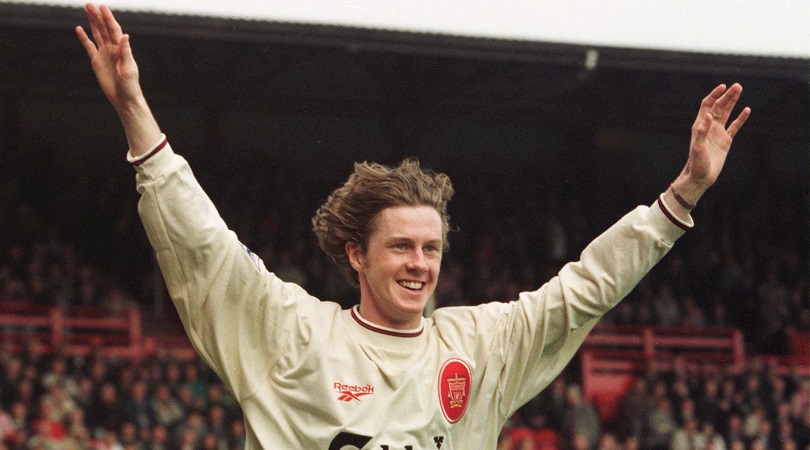
22. Steve McManaman (Liverpool)
There was a time in the 1990s when it wasn’t clear whether Manchester United or Liverpool had the more promising set of young players. Yet while Fergie’s Fledglings went on to win Premier League titles galore, Evans’ Infants ended the decade empty-handed.
At one stage, though, there was genuinely little to choose between Scholes-Giggs-Beckham and Redknapp-Fowler-McManaman. Fowler may have been the more spectacular talent, but it was often McManaman who gave United the biggest problems during the 1990s; Alex Ferguson regularly came up with bespoke plans to shackle him.
A tricky dribbler and creative passer, the Bootle-born midfielder thrived both out wide and in a central role. His contract wrangles and Bosman departure ultimately soured his standing with supporters, but no one could deny McManaman’s importance.
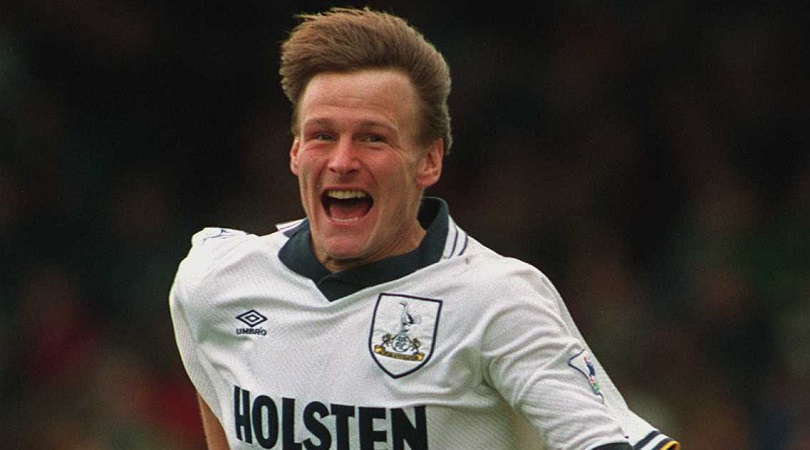
21. Teddy Sheringham (Manchester United)
Sheringham began his Premier League career with Nottingham Forest, making three appearances for Brian Clough’s side in the division’s curtain-raising campaign. Tottenham then prised him away from the City Ground in August 1992, and the striker went on to win the league’s first ever Golden Boot with 22 strikes (one of which was for Forest) as Spurs finished eighth.
He followed that up with 13 in 1993/94, 18 in 1994/95 and 16 in 1995/96, before a slightly disappointing haul of seven in 1996/97. That didn’t deter Manchester United from signing him as Eric Cantona’s replacement, with the England international scooping his first pieces of silverware in the Treble season of 1998/99.
United’s Sheringham never reached double figures in the league in the 1990s, but he was always so much more than a goalscorer: intelligent and inventive, the Londoner was as adept at creating chances as converting them.
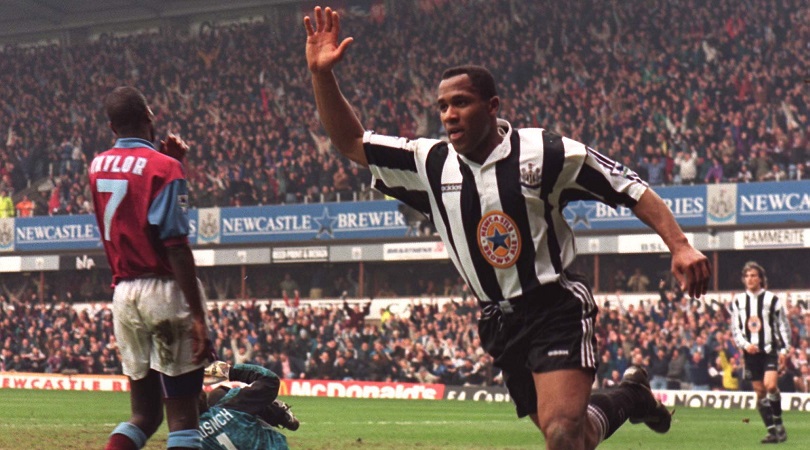
20. Les Ferdinand (QPR, Newcastle, Tottenham)
Sir Les began his career in the 1980s and ended it in the 2000s, but he reserved his best years for the 1990s. QPR’s surprise fifth-place finish in the first ever Premier League season owed much to Ferdinand’s 20 goals, a tally he bettered two years later by notching 24 times for the west London outfit.
His consistency in the capital brought a move to the other end of the country, with Newcastle boosting QPR's coffers to the tune of £6m. That proved money well spent: Ferdinand, named PFA Player of the Year, made the net bulge 25 times in 1995/96 as Kevin Keegan’s men almost won the title, before contributing 16 more when the Magpies finished runners-up again in 1996/97.
His goal return dropped at Tottenham as injuries began to take their toll, but at his best Ferdinand was one of the division’s deadliest marksmen.
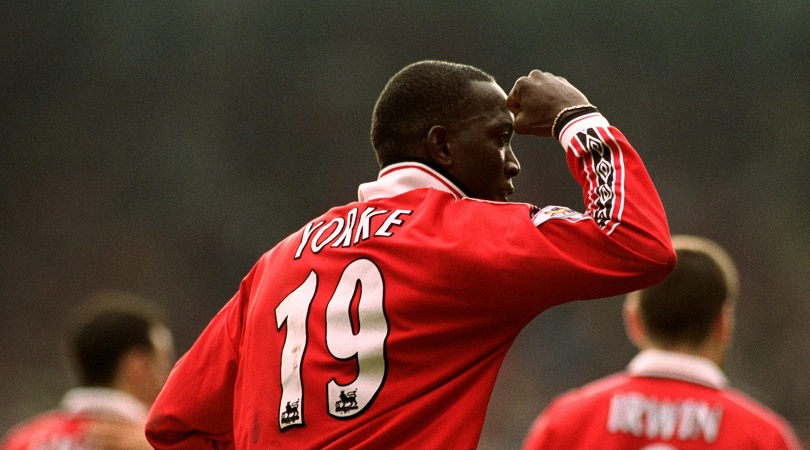
19. Dwight Yorke (Aston Villa, Manchester United)
Yorke made a quiet start to Premier League life, notching just 14 goals for Aston Villa in the rebranded top tier’s first three seasons. He fared much better thereafter, though, scoring 17 times in both 1995/96 and 1996/97 as the Villans finished fourth and fifth under Brian Little.
Yorke added 12 more to his personal tally the following campaign, before Alex Ferguson brought him to Old Trafford in 1998. Pairing the Tobagonian with Andy Cole proved a masterstroke; the duo struck up a fine understanding and Yorke ended his debut season at Treble-winning Manchester United with 18 league goals (29 in all competitions).
In Premier League terms, the 1999/00 Red Devils team were far stronger than the 1998/99 iteration – they amassed 12 more points and finished a mammoth 18 clear of second-placed Arsenal. Yorke scored 20 times in the league, the only time in his career he would reach that milestone.
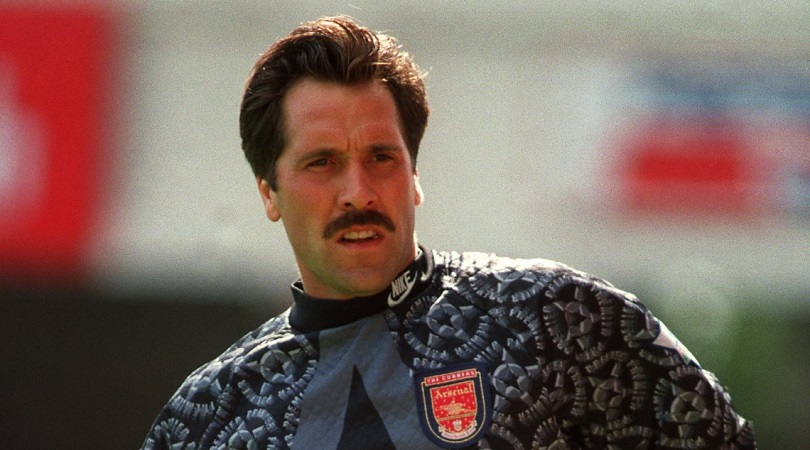
18. David Seaman (Arsenal)
Seaman had already won one championship with Arsenal when the Premier League was born, and he would add two more titles before the decade was out. The Highbury stalwart remains one of the best goalkeepers that the division has seen.
Arsene Wenger may have revolutionised Arsenal after taking charge in 1996, but he knew better than to immediately dismantle George Graham’s fabled back four. Seaman was the ever-present insurance policy behind Tony Adams & Co., amassing a showreel of superb saves as Wenger’s side won the Double in 1998.
Age began to catch up with him in the early 2000s, but Seaman was an outstanding goalkeeper throughout the previous decade – and the greatest in Arsenal’s history.
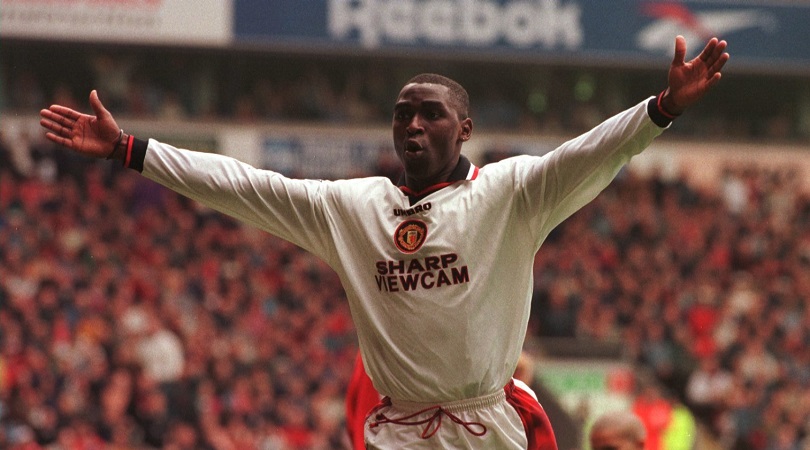
17. Andy Cole (Newcastle, Manchester United)
Even by the standards of 1990s transfers, the secrecy surrounding Cole’s switch from Newcastle to Manchester United was astonishing. Most fans learned of the move only after it had been completed, forcing Magpies boss Kevin Keegan to explain himself to stunned supporters outside St James’ Park.
This was a big deal – in all senses. Cole had bagged 34 goals in a sensational 1993/94, as newly promoted Newcastle finished in the top six. He continued in a similar vein for the first half of 1994/95, which brought about the move to Old Trafford in January.
Cole stepped straight up with 12 goals in his first 18 league appearances for United. By the end of 1999/00 he had 91 Premier League strikes to his name, plus four league titles, two FA Cups, a Champions League and an all-time great strike partnership with Dwight Yorke.
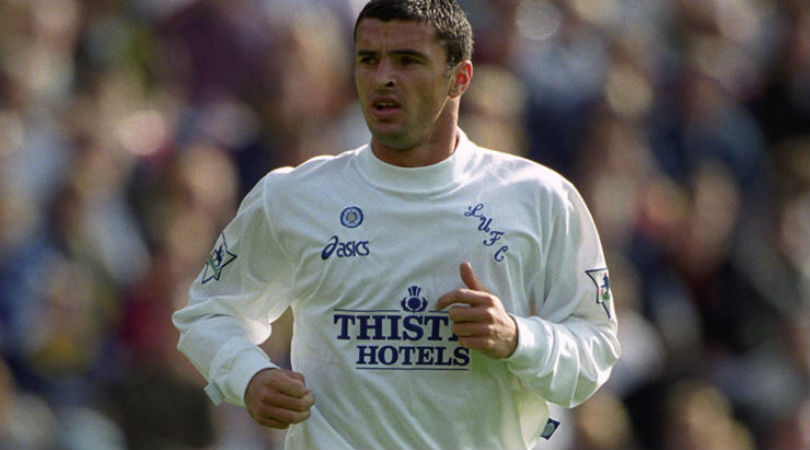
16. Gary Speed (Leeds, Everton, Newcastle)
The late Gary Speed played more games than anyone else in the first 10 years of the Premier League. Even later on in his career at Bolton Wanderers, he played every game in two of his three seasons – aged 35 and 37 – thanks to his incredible commitment to fitness. Speed totalled 535 Premier League appearances, a tally beaten only by Ryan Giggs, Frank Lampard, David James and Gareth Barry.
But Speed’s greatness was about more than consistency. In his 1990s prime with Leeds (where he won the title in 1991/92), Everton and Newcastle, the Welshman brought leadership, intelligence, versatility, creativity, grit, guts and goals. He got 80 of them in the Premier League, one every six or seven games and many of them headers – uncommon for a midfielder who could also play as winger or full-back.
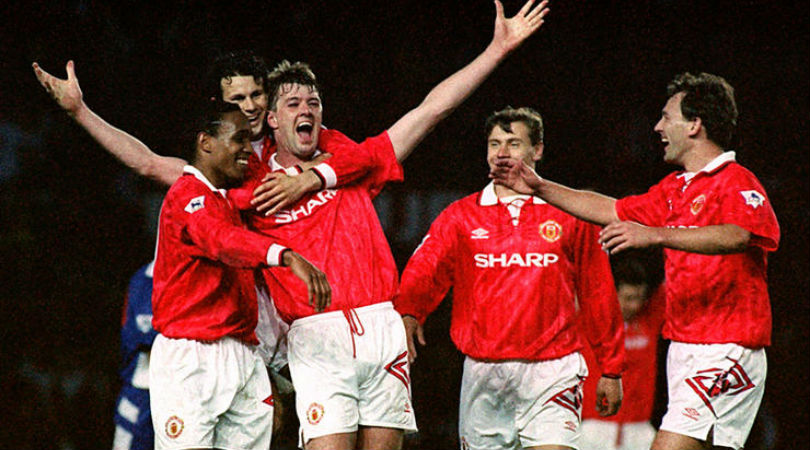
15. Gary Pallister (Manchester United, Middlesbrough)
Pallister has faded from the limelight since hanging up his boots but was absolutely vital to Sir Alex Ferguson’s dominant side. The United centre-back partnership of Pallister and Steve Bruce was as intimidating as their nickname, Dolly and Daisy, was not.
PFA Player of the Year in 1992, Pallister made four consecutive Teams of the Year and five in total. And amid four titles in his six Premier League campaigns with United, they somehow conceded the fewest goals in the two they didn’t win: just 54 across 80 matches in 1994/95 and 1997/98.
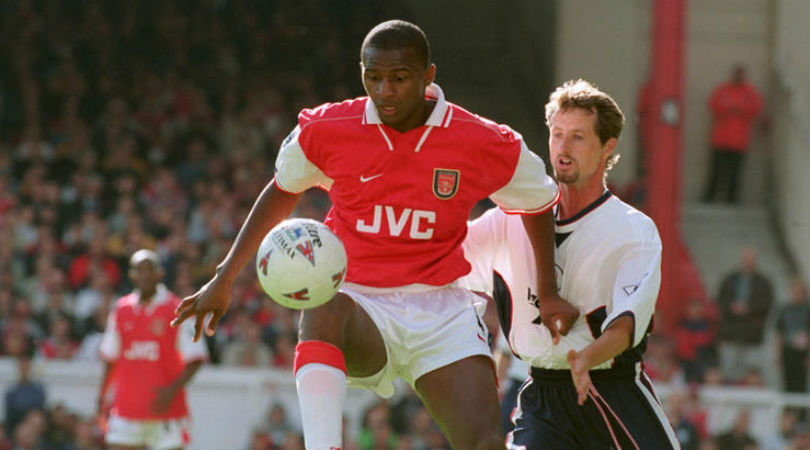
14. Patrick Vieira (Arsenal)
Vieira’s relatively low position in this list isn’t a slight on his ability – he was just 23 when the ’90s ended and, even with his World Cup and Double double in 1998, yet to reach his towering peak. Enthusiastically dubbed “the thinking man’s Carlton Palmer” by The Times following his Arsenal debut, Vieira wasn’t just one of the best midfielders the Premier League has seen, but one of the greatest in the history of the game.
The Senegal-born French international was the complete midfielder, far removed from the destroyer posterity paints him as, and was as technical a player as he was physical.
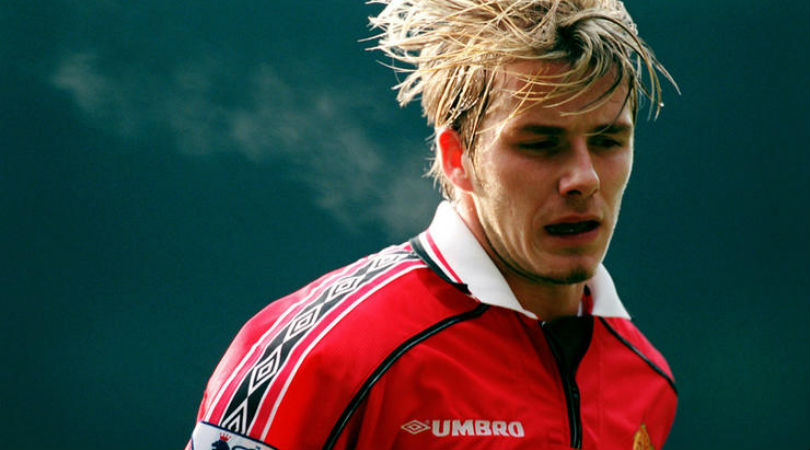
13. David Beckham (Manchester United)
As the new millennium dawned, Beckham’s image was seared into every English brain cell. So much so that when Posh ’n’ Becks frenzy reached its height in 1999, many asked if Beckham – whose red card had precipitated England’s World Cup exit the previous year – was actually any actual good at actual football.
Of course he was. Fabulous technique and an almost masochistic commitment to training made 20-year-old Beckham a regular in Manchester United’s 1996 Double-winning side, before he kicked off their 1996/97 season with a goal from his own half. By 1999/2000’s close, Beckham – a right-sided midfielder more than a winger – had scored or assisted 88 goals in his 175 Premier League games. Yeah, he could play.
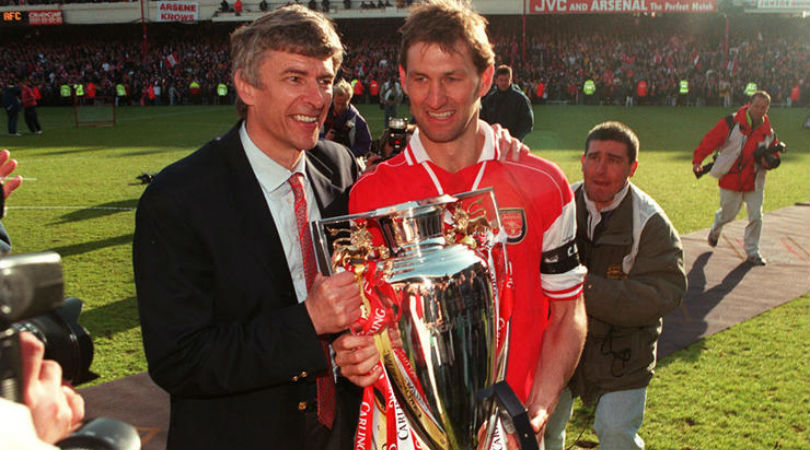
12. Tony Adams (Arsenal)
On his Arsenal debut, Adams played in front of the legendary Pat Jennings. In his final appearance for the Gunners, he played next to Ashley Cole. To be at the heart of one team’s defence for nearly 20 years is impressive enough; to do that while the team changes beyond all recognition, and as captain from the age of 21 through to retirement at 35, is unheard of.
George Graham called him ‘my colossus’. Arsene Wenger referred to him as a ‘professor of defence’. Wenger was Adams’ fifth manager at Highbury, yet his lifestyle revolution seemingly posed a threat: Adams had revealed his alcoholism in a front-page exclusive just as his new boss was being appointed.
However, the two worked together to banish Arsenal’s drinking culture. Wenger set about revolutionising the way Arsenal played football while the back line remained as it was, under Adams’ guidance as captain. The result: two Double wins in five seasons.
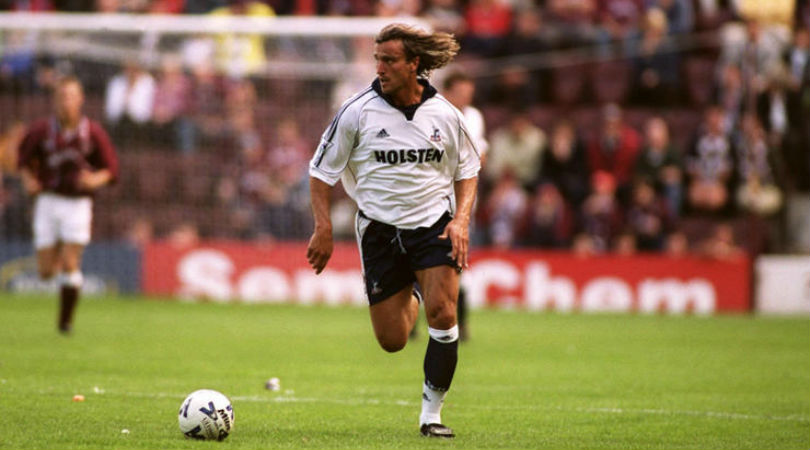
11. David Ginola (Newcastle, Tottenham)
In the 1998/99 season, Manchester United won an unprecedented treble of Premier League, FA Cup and Champions League titles. They only lost five matches all season, scored over 100 goals and ended a 31-year odyssey to win back Europe's top title. But who won the individual awards? A glossy-haired Frenchman who played for Tottenham.
Spurs won the only trophy United didn’t, the League Cup, and Ginola lifted both the PFA Player of the Year and the FWA Footballer of the Year prizes. Before his move to north London, Newcastle United came second in the Premier League in the two seasons he played there. Coincidence? We think not.
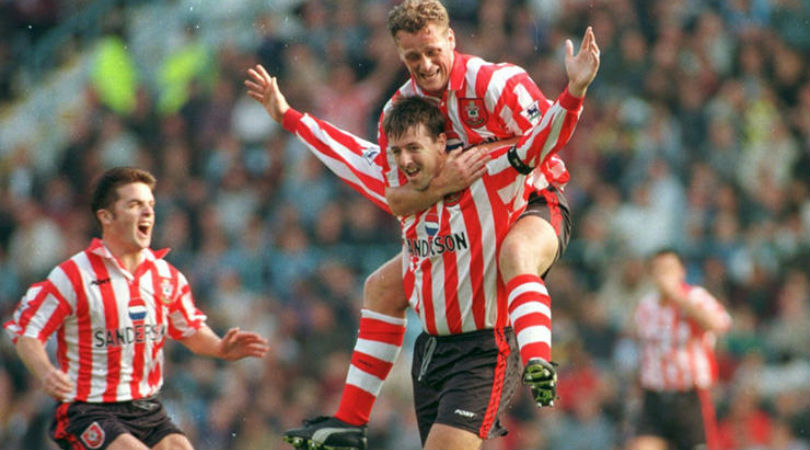
10. Matt Le Tissier (Southampton)
They really don’t make them like that any more, and even if they did, they probably wouldn’t get picked now. Matt Le Tissier not only survived but thrived in the last football era that would let him. His relaxed approach to diet and conditioning was a choice, and as he told FourFourTwo: “I knew I had the ability to change games without being as fit as the other players on the pitch.”
The Guernseyman scored 160 league goals (60 pre-1992/93) for a Southampton team camped in the bottom half, yet his slovenly style, stifling a yawn as he sauntered past defenders and picked his spot, made brilliance seem almost attainable for the fans in the stands.
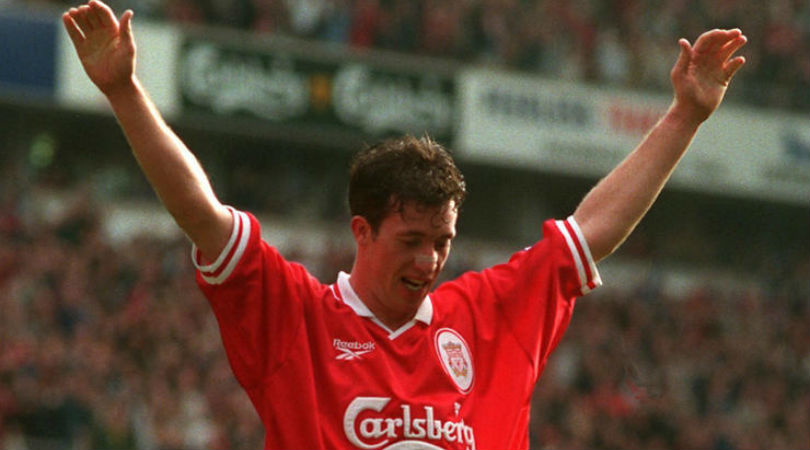
9. Robbie Fowler (Liverpool)
Fowler exploded onto the scene in the 1993/94 season, when he became only the fifth player ever to score five in a match for Liverpool against poor old Fulham in a League Cup match. No fewer than 12 English strikers scored 15 or more goals in that 42-game season, but Fowler stood out.
His innate ability to finish alongside his capacity to almost-singlehandedly destroy teams set him apart. The quickest of Fowler’s nine Premier League hat-tricks – only Alan Shearer can boast more – obliterated Arsenal in four minutes and 33 seconds. He was just 19 years old.
Preternaturally clinical, Fowler scored half of his 163 Premier League goals before his 22nd birthday. Injuries caused a slow decline, but in the mid-90s he wasn’t just good – he was God.
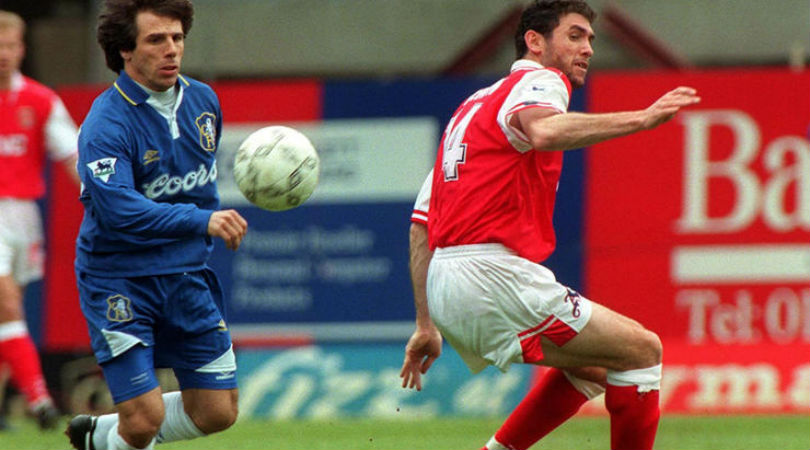
8. Gianfranco Zola (Chelsea)
It would be easy to dismiss Zola as just a flair player – the backheel goal from a Graeme Le Saux corner against Norwich, the scooped assist for Gus Poyet and that goal in the FA Cup semi-final against Wimbledon – but it would be disingenuous to do so.
Zola introduced team-mates to pre-training gym routines and unilaterally raised standards throughout the squad. He was voted FWA Player of the Year in his first season in English football, leaving an indelible mark on the game on these shores.
When he arrived, Chelsea had won four titles in their history; when he left (on the same day Roman Abramovich arrived) – having been voted as Chelsea’s best ever player – they had won eight. Nice guys don’t always finish last.
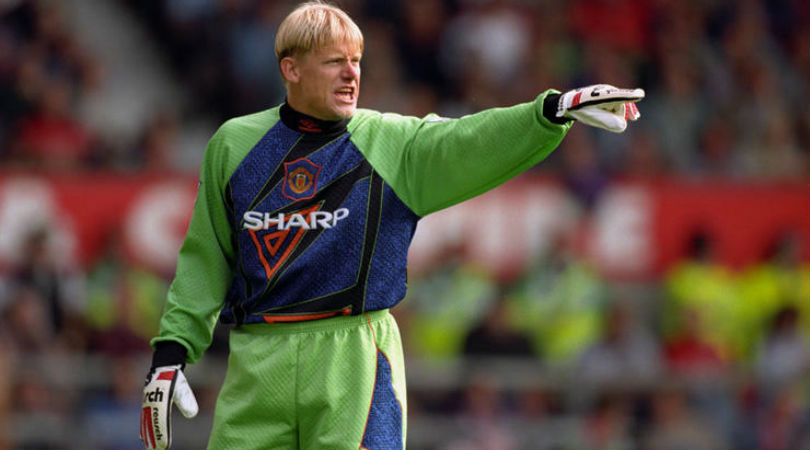
7. Peter Schmeichel (Manchester United)
Schmeichel kept 112 clean sheets in 252 Premier League matches, winning five Premier League titles along the way. Watching him cartwheel across the pitch as Manchester United secured their unprecedented Treble in 1999, it was easy to forget he was 35.
That match concluded both an epic 63-game club season (unbeaten since Christmas) and his eight-season United career. He left Old Trafford for Sporting on a high and as a United and Premier League legend.
Schmeichel’s intimidating size, long reach and impeccable organisation of the defence in front of him were key to his brilliance – and United’s dominance of English football in the 1990s.
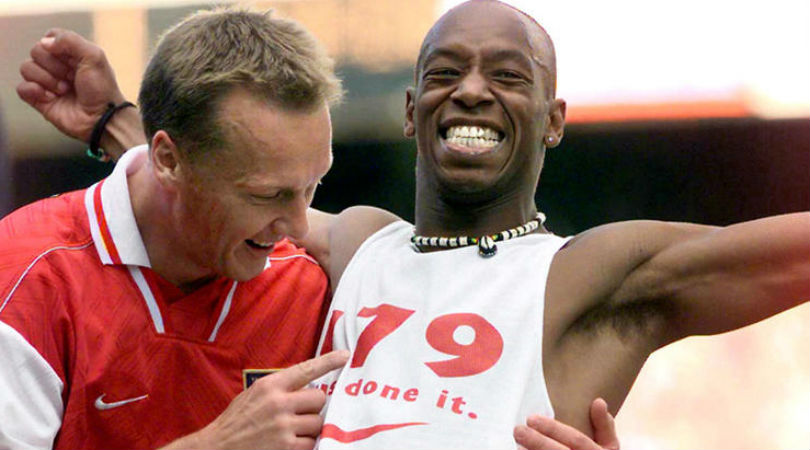
6. Ian Wright (Arsenal, West Ham)
Wright was the very definition of a late bloomer. He was nearly 22 when he swapped non-league football for Crystal Palace; 25 when he made his top-flight bow; 27 when he won the first of 33 caps for England; and his Arsenal transfer came seven months after that, in September 1991. It was quite the achievement that he became Arsenal’s record goalscorer (until Thierry Henry surpassed him) and represented England as late as their Euro 2000 qualification campaign.
He also played his part in the 1997/98 Double triumph. In his lowest-scoring – and final – season with Arsenal, Wright nonetheless hit nine goals in their first 10 league games before injury put his prolific run to an end. He remained on the bench for the FA Cup final – Christopher Wreh started in his place – in a rather underwhelming and sad end to his Arsenal career.
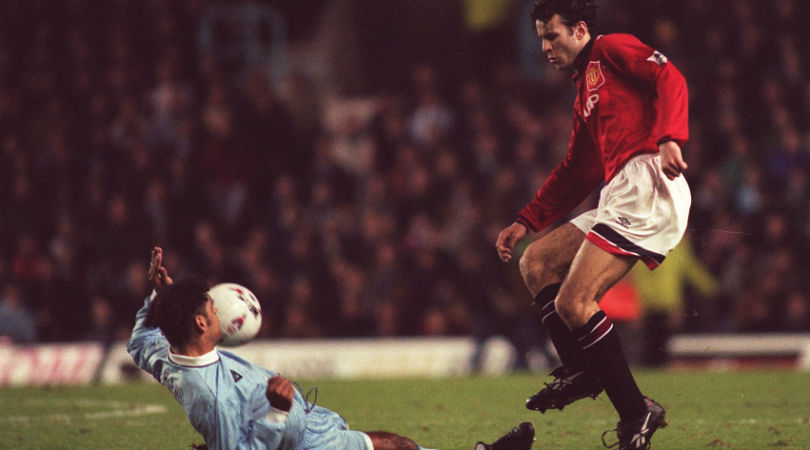
5. Ryan Giggs (Manchester United)
As with fellow Welshman Gary Speed, appraisals of Giggs’s playing career tend to concentrate on his longevity over his ability. It’s worth remembering, then, that Giggs the winger – ‘90s Giggs – was phenomenal. He was lightning-quick, a superb crosser, averaged a goal or assist every other game throughout the entire decade, and took wonderful free-kicks that gave United a double threat: the enviable choice of Giggs’s left foot or Beckham’s right.
His transformation into a more complete midfielder – a move that prolonged his career – was admirable, but the ‘90s Giggs was the one that would tear you apart, as the Old Trafford faithful still sing with gusto.
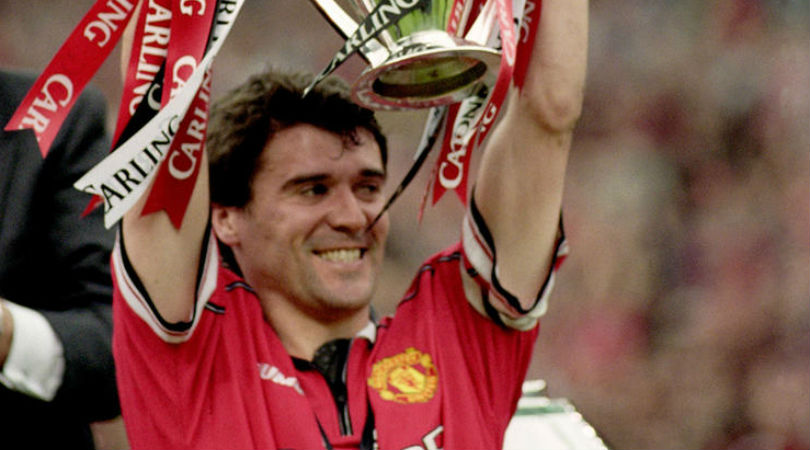
4. Roy Keane (Nottingham Forest, Manchester United)
The importance of captaincy in football can be overstated. On the other hand, there’s Roy Keane. Having played under both Brian Clough and Sir Alex Ferguson before his 22nd birthday, it’s easy to see how Keane took on the aura he did.
He was signed by Manchester United for a record fee after making 1992/93 PFA Team of the Year, despite finishing bottom with Nottingham Forest. Keane was 21 when he arrived, but despite his young age played 37 league games that season – the most in his career.
Between suspensions and injuries, the Irishman inspired his United team-mates with infectious work rate, crucial goals and petrifying demeanour. After the midfielder’s all-action performance in Turin for the second leg of their 1999 Champions League semi-final, Alex Ferguson wrote: “It was an honour to be associated with such a player.”
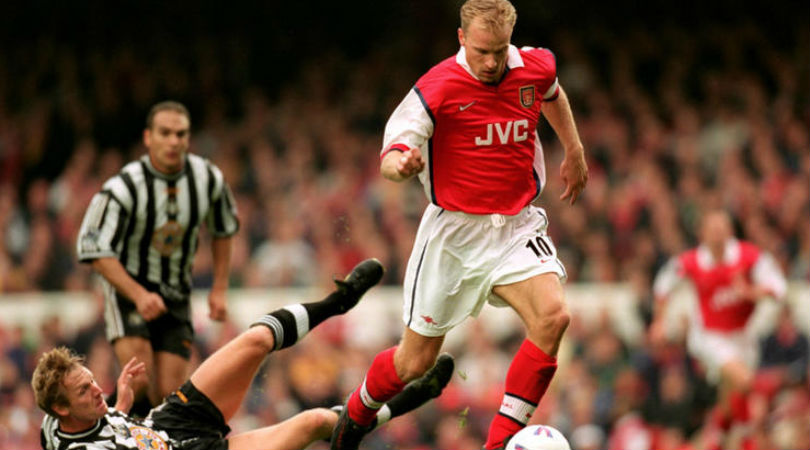
3. Dennis Bergkamp (Arsenal)
“The pleasure of scoring goals is known, but for me, the pleasure of the assist came close. It’s like solving a puzzle. I always had a picture in my head of how things would look two or three seconds later – I could calculate it. There’s a tremendous pleasure in doing something that someone else couldn’t see.”
Bergkamp’s words to FFT in 2011 beautifully captured not only what he wanted to do, but also why football lovers so appreciated his aesthetic appeal. But he was also ruthless.
Arsenal’s Double-winning team had many stars, but only Bergkamp – the PFA Player of the Year and FWA Footballer of the Year with 27 goal contributions in 28 league games – combined artistry with tangible results so perfectly.
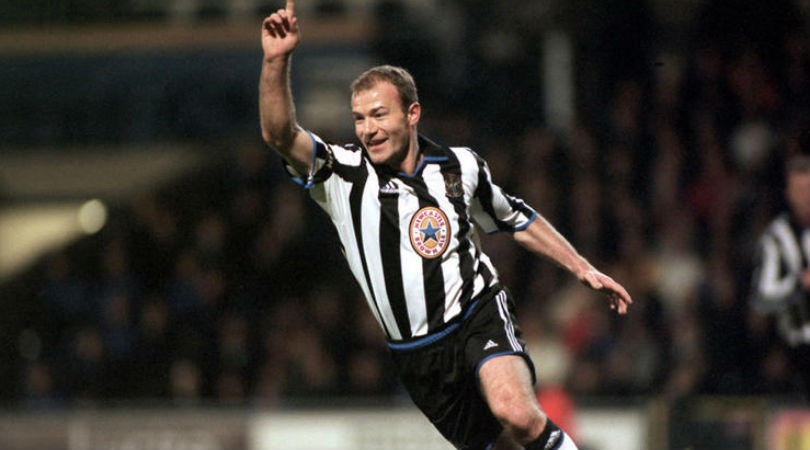
2. Alan Shearer (Blackburn, Newcastle)
Nothing better illustrates Alan Shearer’s 1990s greatness than his preposterous goalscoring record. In four years at Blackburn, he delivered a Premier League title and 112 goals in 138 matches.
Moreover, Shearer remained prolific despite injury. His first Rovers season brought a snapped ACL. He was 22, at a new club, stricken... and scored 16 goals in 21 games. At Newcastle, he had one season before torn ankle ligaments forced him to change his game, becoming more of a target man – whereupon he still scored one in two. In total, Shearer netted 260 goals in 441 Premier League games for two teams who, between them, averaged a seventh-place finish.
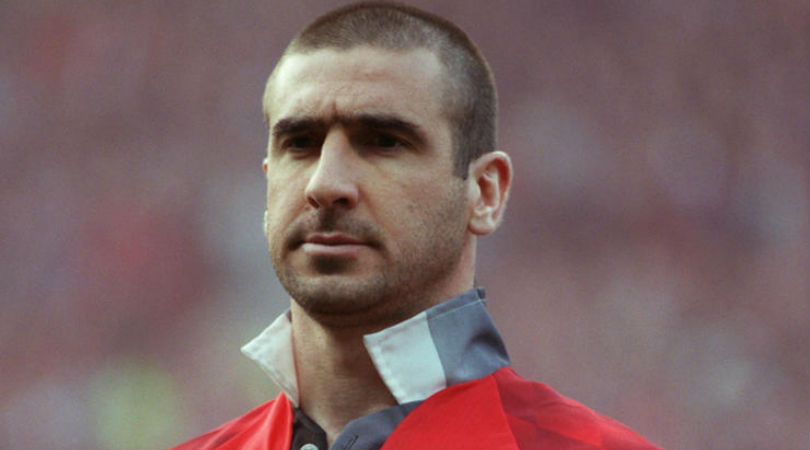
1. Eric Cantona (Leeds, Manchester United)
In just four-and-a-half years at Manchester United, Cantona shaped English football in the 1990s like no other player. When the Frenchman arrived in November 1992, United were eighth, having scored fewer goals than two teams in the relegation zone.
His attitude was invigorating; so too, the way he dropped deep and demanded the ball before driving forward and assisting team-mates or, as with that famous chip against Sunderland, going it alone. United recovered to claim their first top-flight league title since 1967.
Eric had an incredible knack of scoring when it mattered most. In the spring of 1995/96, with Newcastle pushing his team all the way, Cantona netted in six consecutive games. The scorelines were 1-0, 1-1, 1-0, 1-0, 3-2 and 1-0; his goals included the winner at Newcastle and a 90th-minute equaliser. Then he scored the only goal in the FA Cup final against Liverpool as Manchester United sealed the Double. With typical theatre, Cantona retired at Old Trafford aged 30.
